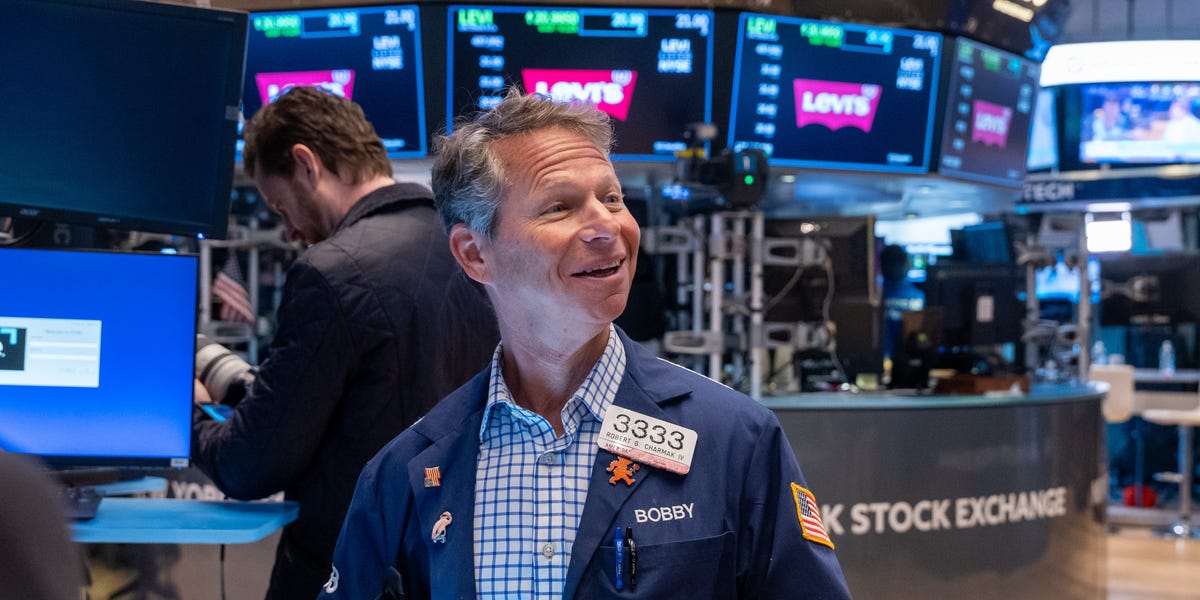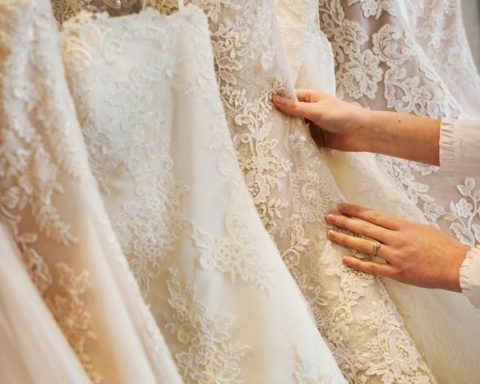US stocks surged on Tuesday morning after enduring a challenging sell-off that lasted three days. Reports of trade discussions with Japan fueled optimism for additional deal-making in the future. However, experts are cautioning about possible market volatility and long-term repercussions on the valuations of US companies.
After three days of aggressive selling, which represented the most significant downturn since the onset of the COVID-19 pandemic, US stocks experienced a remarkable rebound on Tuesday. This surge was complemented by a rise in global markets, with both European and Asian stocks also advancing following news that President Donald Trump, along with his administration, is pursuing trade agreements with nations affected by tariffs.
As of 9:57 a.m. ET, US index positions were as follows:
- S&P 500: 5,238.00, up 3.47%
- Dow Jones Industrial Average: 39,265.51, up 3.42% (+1,299.91 points)
- Nasdaq Composite: 16,188.24, up 3.72%
Treasury Secretary Scott Bessent indicated on Fox Business on Monday that Japan is likely to be prioritized for a trade agreement, as they responded “very quickly.” The “Magnificent Seven” tech stocks, including heavyweights like Nvidia and Tesla, saw a remarkable resurgence, with their shares rising more than 6% at market opening, while Amazon increased by 5% and Microsoft gained over 3%.
In Europe, several companies saw impressive gains, with Dutch payment firm Adyen climbing 6.5%, Spanish bank Santander increasing by 6.4%, and French aerospace giant Safran up 5.1%. Major automakers, such as BMW, Volkswagen, and Mercedes-Benz, also reversed early declines and traded positively.
Shares in Hong Kong and China progressed following reports of state-related purchases. According to the Xinhua state news agency, Central Huijin Investment, a state-backed investment entity, has boosted its stakes in exchange-traded funds.
Conversely, Indonesian stocks fell nearly 10% in their first trading session after a week-long public holiday, and Taiwanese shares remained weak. European equities experienced a rebound, indicated by the following index performances:
- Germany’s DAX: up 2.8%
- Britain’s FTSE 100: up 3.3%
- France’s CAC 40: up 3.1%
- Euro Stoxx 50: up 2.8%
In Asia, most major indexes wrapped up the day positively:
- Japan’s Nikkei 225: up 6%
- South Korea’s Kospi: up 0.3%
- Hong Kong’s Hang Seng Index: up 1.5%
- China’s CSI 300: up 1.7%
- Australia’s ASX 200: up 2.3%
- Taiwan’s Taiex: down 4%
Despite this morning’s rally, analysts urge caution, given the trillions of dollars lost in the stock market following Trump’s announcement of extensive tariffs across the globe last Wednesday. Yeap Jun Rong, a market strategist at IG, noted in a report on Tuesday that the recent market decline was so pronounced that even minimal positive news regarding tariffs could trigger a substantial shift in sentiment.
“Currently, a sense of calm has returned with the VIX easing from its recent peak as countries enter the ‘negotiating phase’ concerning tariffs,” he mentioned, referencing the CBOE Volatility Index.
Market volatility dominated US markets on Monday, with the S&P 500 officially entering bear market territory, only to spike 8.5% momentarily due to false reports suggesting Trump was contemplating a 90-day pause on tariffs. Ultimately, the index closed 0.2% lower.
“Despite the recovery observed this morning, the markets are in a precarious position, with significant volatility persisting across various asset categories,” analysts at Deutsche Bank remarked in a note on Tuesday.
Among the looming risks is a potential escalation between the US and China, as both countries have imposed retaliatory tariffs on one another and issued new tariff threats, indicating that neither side is willing to yield.
Some analysts posit that investors should think about the long-term disruptions that Trump’s tariffs could impose on corporate earnings and valuations, particularly within the US market. “Decades of impressive market gains and substantial household exposure to equities mean that negative wealth effects will be more pronounced in America, along with the possibility of valuation reductions and the repatriation of foreign funds,” commented analysts at Global Data TS Lombard in a report on Monday.













